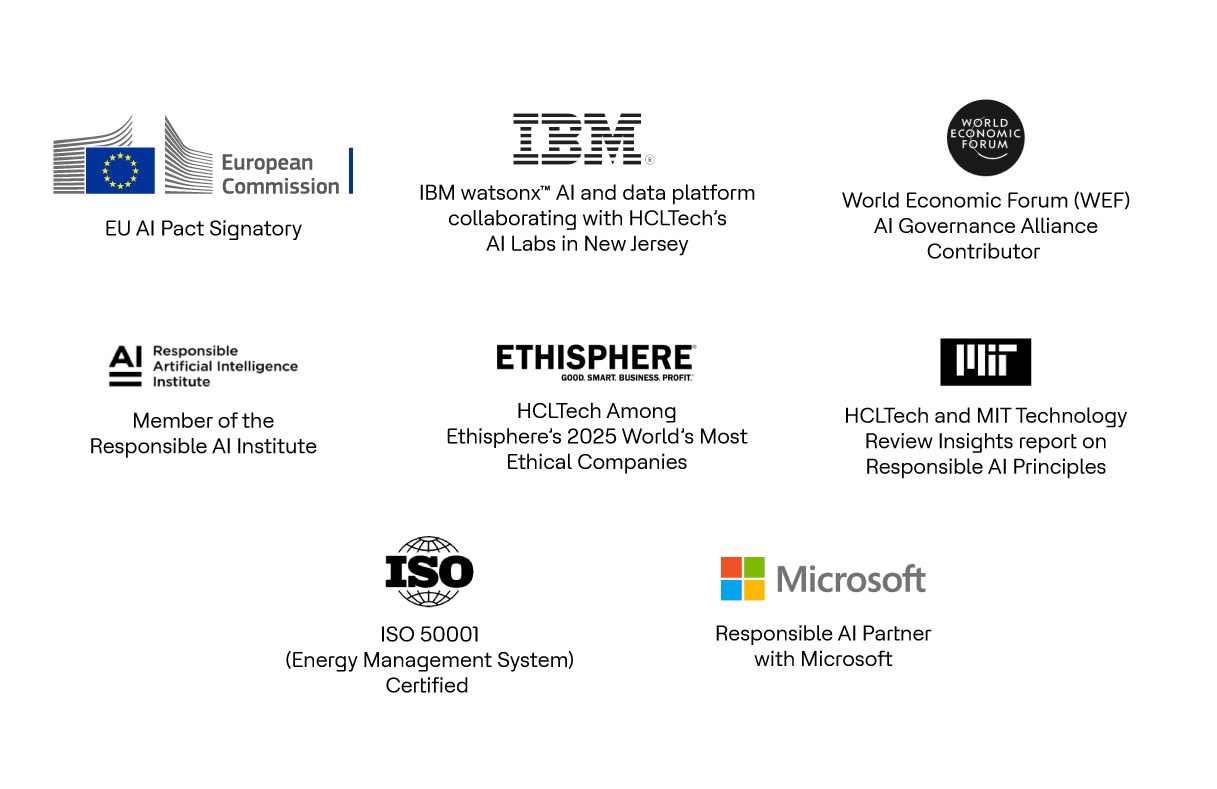Overview
As AI technologies advance, businesses must ensure that their AI systems are developed and deployed ethically and responsibly
To empower our clients in this area, HCLTech established the Office of Responsible AI and Governance (ORAIG), dedicated to guiding organizations through the complexities of AI governance, compliance and ethical deployment. ORAIG combines deep expertise in AI technologies with a strong commitment to responsible practices to build AI systems that are not only effective but also ethical, transparent and compliant with global standards.
Our core values of Integrity, Inclusion, Value Creation, People Centricity and Social Responsibility serve as guiding principles for the actions we take and the capabilities we build. They provide a cornerstone for responsible adoption and deployment of AI and enable us to deliver value for our company, clients and communities.
Our Responsible AI and Governance Framework
At HCLTech, we empower you to harness the full potential of AI, while safeguarding your brand and driving sustainable growth. When AI is developed, implemented, deployed and governed with responsibility at its core, organizations don't just mitigate risk, they unlock consumer trust, enable regulatory compliance and secure a lasting competitive advantage.
Our Responsible AI and Governance Framework integrates five core tenets to deliver sustainable value: Accountability, Fairness, Security, Privacy and Transparency. These tenets guide our development, deployment and use of AI while promoting the three hallmarks of good, responsibly developed AI solutions:
- User centricity
- Building user trust through experience
- Drawing on human-AI partnerships

Demonstrated Commitment to Responsible AI
We balance AI innovation with trust and long-term value


HCLTech Earns RAII Organizational AI Governance Verification Badge
HCLTech is the first organization to receive the Organizational AI Governance Verification Badge from the Responsible AI Institute (RAII). This recognition highlights our commitment to ethical AI practices and alignment with global governance standards such as ISO/IEC 42001, NIST AI RMF and the EU AI Act. Following a rigorous evaluation against numerous controls and guidelines, including RAII’s Responsible AI Safety and Effectiveness Controls (RAISE), we demonstrated excellence across strategy, policy, tools and culture. This milestone strengthens our position as a trusted advisor, helping clients build mature, compliant and effective AI systems.

HCLTech-MIT Report on Responsible AI
An HCLTech and MIT Technology Review Insights report reveals that while 87% of business executives believe Responsible AI principles are critical to adopt, 85% say they are not well prepared to implement them.
The findings reveal that despite the recognized importance of Responsible AI, there is a significant gap between acknowledging its importance and effectively implementing it.
Challenges attributed to this gap include:
- Complexity of implementation
- Lack of expertise
- Difficulty managing operational risks
- Meeting regulatory compliance standards
- Inadequate resource allocation
Interested to Learn More?
Reach out to us today.


